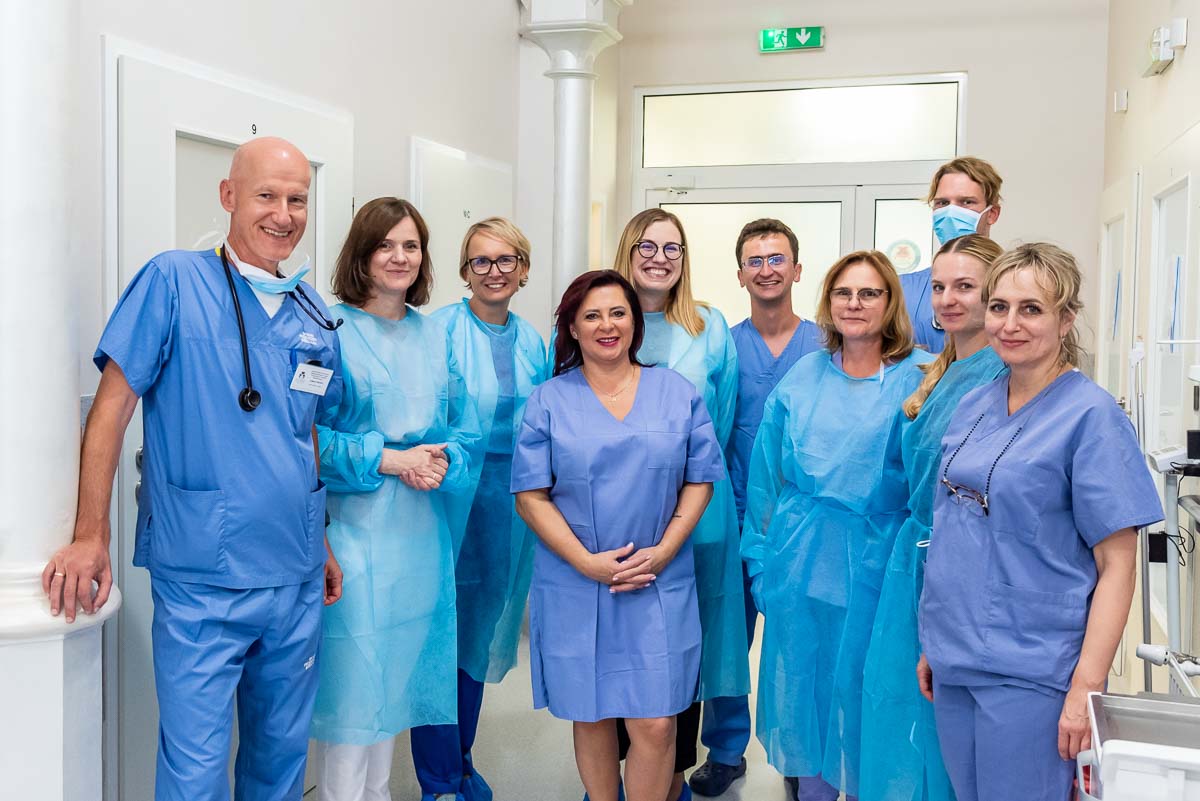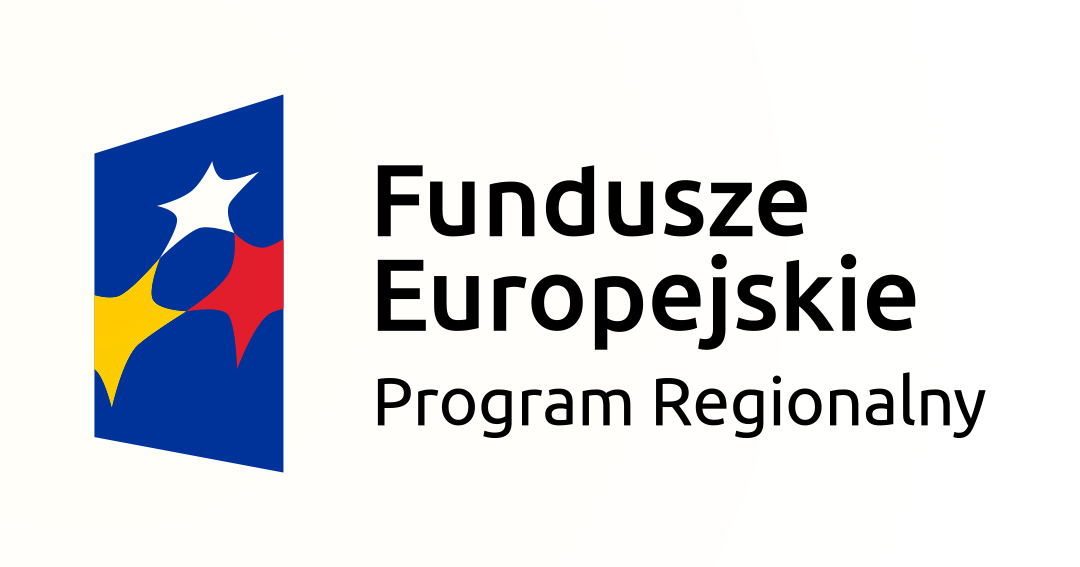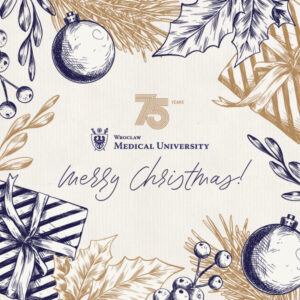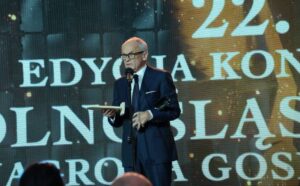
In August of this year, the first academic CAR-T cells in Poland were administered for the treatment of lymphoma at the Department of Hematology, Cellular Therapy, and Internal Medicine of the Wroclaw Medical University (WMU).
This event is significant not only for the university itself but also for the entire healthcare system. It was the first time in the country that a CAR-T therapy developed
and manufactured at an academic center was used. This was made possible thanks to funding for the research project from the Medical Research Agency and private donations supporting the clinic’s scientific activities.
CAR-T therapy involves the use of the patient’s own lymphocytes, which—after appropriate genetic modification—are capable of recognizing and destroying cancer cells. The modified lymphocytes recognize a specific antigen (in the case of lymphomas, CD19) and effectively eliminate the cancer cells that possess it.
Advantages of academic therapy
The development of this method worldwide is proceeding along two parallel tracks. On the one hand, there are commercial products from pharmaceutical companies, and on the other, projects conducted by universities and research centers. Both paths complement each other.
“The version developed at academic centers has several significant advantages,” explains Professor Tomasz Wróbel, head of the Clinic of Hematology, Cellular Therapies, and Internal Medicine at the Medical University of Warsaw. “First and foremost, it is significantly cheaper than commercial therapies—the cost of production is at least three times lower. Time is equally important. The entire process, from cell collection to administration to the patient, is up to twice as fast as with commercial preparations. This is crucial in the treatment of aggressive cancers, where time is of the essence.”
It is also important that academic CAR-T therapy opens up the possibility of treating patients who have medical indications but, for various reasons, do not qualify for reimbursed commercial therapy.
“This applies particularly to older people over 70, as well as patients with atypical lymphoma subtypes who do not meet the criteria for commercial reimbursement programs,” explains Prof. Anna Czyż, Deputy Head of the Clinic of Hematology, Cellular Therapies, and Internal Medicine at the Wroclaw Medical University. “This allows academic centers to expand access to modern immunotherapy. A 76-year-old patient with relapsed aggressive lymphoma, who was the first to receive CAR-T cell therapy at our clinic, would have no chance of receiving reimbursement for such a commercially available therapy.”
5 years of preparation
The project was financed primarily by a grant from the Medical Research Agency (ABM) of nearly PLN 15 million. Its inception was also made possible by private donations. Foundations for families of patients whose loved ones died from lymphoma donated a total of approximately PLN 1.1 million, even before the development of this technology. These funds were used to purchase equipment and reagents, enabling the initiation of research
and project preparation. Private support thus supplemented areas that could not be covered by grant funding, demonstrating the trust and determination of patients’ families
in the fight for the development of new treatment methods.
The road to implementing the therapy at the Wroclaw Medical University was long and demanding. The entire process took approximately five years, two of which were devoted to the research and production phase. The most challenging aspects were the formal and legal issues stemming from the novelty of the technology and the rapidly changing regulations in Poland. Dr. Kinga Stańczak-Mrozek, representing the Medical Research Agency, announced that the Wrocław team was the first in Poland to overcome many challenges, including regulatory ones.
“Your success is also a success for the Medical Research Agency, which views projects like CAR-T as strategic investments in the development of Polish medicine,” she said. “It also certifies that Polish centers are capable of developing cutting-edge therapies. Thanks to the synergy of science, clinics, and public funding, Polish patients have the opportunity to receive top-quality treatment.”
The Rector of the Wroclaw Medical University, Professor Piotr Ponikowski, emphasized the importance of the first academic application of CAR-T in Poland in the context of Poland’s ambitions in the field of medical innovation.
“I am pleased and proud that the Wroclaw Medical University is conducting innovative Phase I and II clinical trials initiated by our physicians,” said Professor Piotr Ponikowski, congratulating the team on their passion and determination in pursuing their goals. “Academic CAR-T at the Medical University and the University Clinical Hospital in Wrocław is an example of how to win the race to introduce true innovations in the treatment of sick people.”
Establishing close collaboration with the Regional Blood Donation and Treatment Center (RCKiK) in Poznań, which has the appropriate conditions for cell production, proved crucial for the project. It is there, in collaboration between the RCKiK and the Wrocław University of Environmental and Life Sciences, that CAR-T is produced. The frozen preparation is then returned to Wrocław for administration to the patient. Cell production takes 14 days, and the entire procedure, from cell collection to administration, takes 21 days. The director of the RCKiK in Poznań, Dr. Roman Klupieć, expressed his satisfaction that the unit he heads is having a real impact on patient treatment.
CAR-T therapy, like other immunological methods, can cause side effects resulting from the rapid activation of the immune system. Therefore, patients must remain under close hospital observation for at least four weeks after administration. The first effects of the therapy can usually be assessed after a month, although in some cases, a full clinical response does not develop until three months after cell administration.
“The introduction of the first fully academic CAR-T therapy in Poland is a crucial step for us, allowing us to offer patients innovative treatment that is, above all, effective,” emphasizes Dr. Beata Freier, Deputy Medical Director for Surgical and Oncology Services at the University Clinical Hospital in Wrocław. “Importantly, patients receiving CAR-T therapy require close observation and comprehensive medical support. Therefore, we are conducting the program in a safe clinical setting, with full monitoring and response procedures. The role of the University Clinical Hospital is to make innovative immune therapies available to a wider group of patients as a viable treatment option in the early, crucial stages of the disease.”
Future prospects
The Wrocław study includes patients with aggressive B-cell lymphoma, the most common type of lymphoma in Poland. Between 1,000 and 1,500 new cases are diagnosed each year. Academic therapy at the Wrocław clinic was initiated in patients with early relapse, occurring within 12 months of prior treatment, as well as in those at high risk of chemoresistant lymphoma recurrence.
– This is not a “last resort,” but rather the introduction of the most effective method possible as early as possible to cure patients at high risk of resistance to other treatment methods – emphasizes Prof. Tomasz Wróbel.
The first phase of the study is expected to involve nine to eighteen adult patients from across Poland. Recruitment will last approximately one and a half years and is open to patients nationwide, typically referred through hematology centers across Poland.
In the future, Wrocław research projects based on the developed production methods may cover further indications – acute lymphoblastic leukemia in children, multiple myeloma, Hodgkin’s lymphoma and acute myeloid leukemia.
“This method also has great potential for applications beyond hematology,” adds Professor Anna Czyż. “It is effective in treating a range of autoimmune diseases, including rheumatological, neurological, and nephrological conditions, as well as solid tumors such as gliomas. However, for this development to be possible, the appropriate infrastructure must be established.”
Academic projects not only advance technology but also expand indications to include niche cases, less attractive from the pharmaceutical industry’s perspective but crucial for patients with rare diagnoses. Having our own biotechnology facilities gives the university independence from foreign technologies and, in the future, may lead to patenting and commercialization of solutions. It also represents an investment in science and creates jobs for biology and biotechnology graduates, who can combine basic research with clinical practice.
“The goal of our project is not only to expand access to this therapy, but also to create a stable platform for further university research, encompassing broader indications and new technologies,” summarizes the clinic’s director. “The fact that we managed to bring the project to this stage is primarily due to the creation of a multidisciplinary team. This is where the future lies, not only for CAR-T therapy, but for all advanced therapies. Without professional project management and an experienced research, writing, and manufacturing team, implementing such a study would have been impossible. Funding from the Medical Research Agency allowed us to build such a team and acquire unique competencies. We believe this is the first patient in one of many projects that will in the future provide patients with access to this extraordinary technology. Today’s success is also a moment of reflection and much-needed thanks – to private donors, the Medical Research Agency, and the university authorities who trusted us to achieve this breakthrough despite delays. However, I am most grateful to my close colleagues – the CARMEN team and the manufacturing team at RCKiK, who believed in the project and carried it through despite many challenges.”
Photo: Tomasz Walów, Tomasz Modrzejewski/WMU







